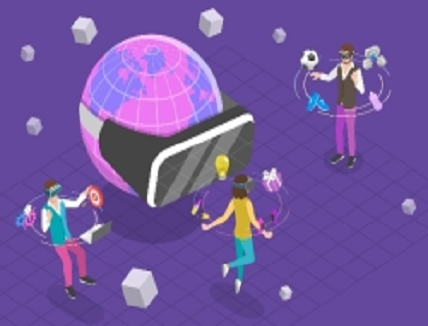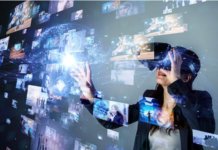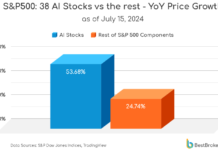
The virtual reality (VR) and augmented-mixed reality (AR-MR) market is at the heart of futuristic digital transformation, offering immersive and assisted experiences through a 3D virtual environment inlaid within or on top of observable reality. Frost & Sullivan’s recent analysis, VR and AR-MR Market, finds that continued development and funding in the metaverse space is attracting more interest and funding to VR/AR-MR projects. VR/AR-MR hardware and software technologies are the primary gateways to access the metaverse. The market is expected to experience an 11-fold increase of $160.14 billion by 2028 from $14.55 billion in 2021, registering an exponential growth at a compound annual growth rate (CAGR) of 40.9% in terms of revenues.
“The wider availability of VR/AR-MR endpoints, the proliferation of mobile devices, continued improvement in connectivity, and the wider recognition of the metaverse as a social and cultural destination are expected to continue to act as main drivers for the VR/AR-MR market,” said Alaa Saayed, ICT Research Director & Fellow. “Additionally, the increasing popularity of the gaming industry is further boosting the VR/AR-MR market. The gaming industry will continue to advance, with video game platforms and publishers continuously growing their VR/AR-MR content catalogs as ways to engage their audience and refresh their platforms.”
Saayed added: “North America (NA) and Asia-Pacific (APAC) are the top two regions generating VR and AR-MR revenue. Advanced connectivity, high technology exposure, and high mobile device penetration are the main factors contributing to the market’s expansion in NA. Similarly, the presence of many display panel manufacturers, a growing number of VR participants, and personal and commercial AR-MR demand contribute to the sector’s growth in APAC.”
For further information on this analysis or to schedule an interview with our expert, please contact María Celeste Bailo, Corporate Communications, at celeste.bailo@frost.com
Key verticals that are expected to benefit from the advancements in VR and AR-MR technologies include:
- Media & Entertainment (M&E): Whether making video games more immersive, raising new virtual venues, or adding extended reality (XR) components to real-world attractions, VR/AR-MR will continue to grow in M&E.
- Industrial and Manufacturing: The move toward Industry 4.0, the increased usage of internet of things (IoT) devices, and the growth of 5G are expected to be the primary drivers for the growing implementation of VR/AR-MR technologies in industrial and manufacturing sectors.
- Retail Sector: VR/AR-MR technologies increasingly offer new ways for retailers to engage with shoppers. Companies are leveraging immersive technologies to form physical and emotional bonds with their brands.
- Health and Wellness: VR/AR-MR technologies are extending treatment and activity options for individuals. While remote health has existed for many years, VR/AR-MR tech brings a new dimension to the experience.
- Education and Training: Immersive learning in education will allow individuals to be engaged in new interactive ways for improved learning outcomes.
- Carpeted Offices: VR and AR-MR cloud meetings and event experiences are expected to increasingly help the workforce of the future. Immersive technologies can be used to enhance communications and collaboration, implement human resource programs, train on new techniques, and create a culture.
Growth Opportunities in the VR and AR-MR Market—Forecast to 2028 is the latest addition to Frost & Sullivan’s Information & Communication Technology research and analyses available through the Frost & Sullivan Leadership Council, which helps organizations identify a continuous flow of growth opportunities to succeed in an unpredictable future.

















